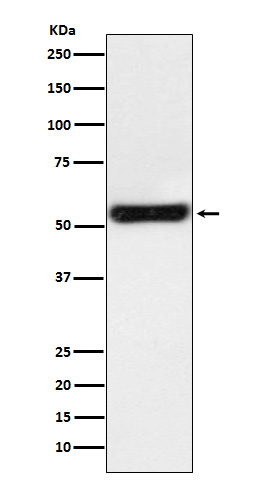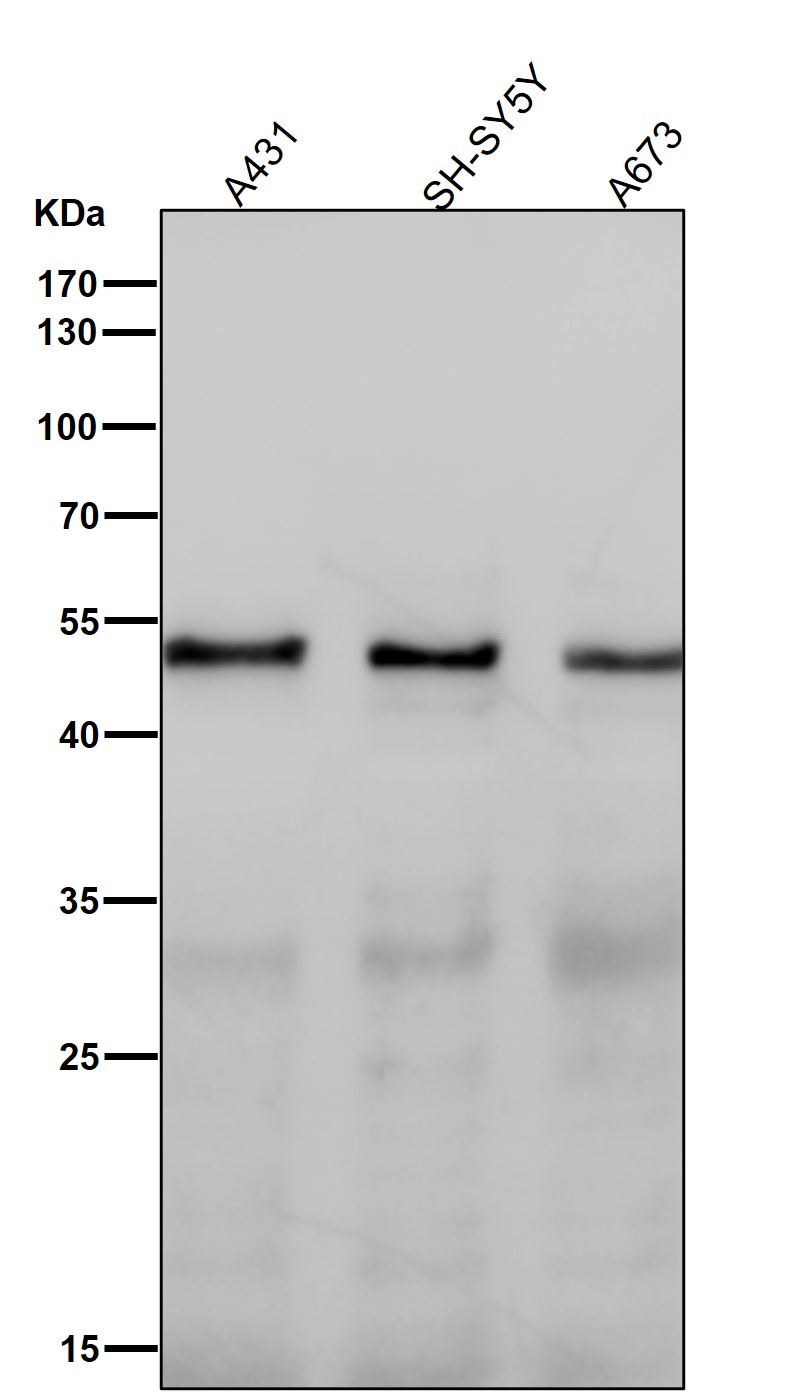

| WB | 咨询技术 | Human,Mouse,Rat,Cow |
| IF | 咨询技术 | Human,Mouse,Rat,Cow |
| IHC | IHC:1/100-1/200;IHF:1/50-1/200 | Human,Mouse,Rat,Cow |
| ICC | 1/50-1/200 | Human,Mouse,Rat,Cow |
| FCM | 1/20-1/100 | Human,Mouse,Rat,Cow |
| Elisa | 咨询技术 | Human,Mouse,Rat,Cow |
| Aliases | EP2; PGE2 receptor EP2 subtype; Prostaglandin E receptor 2 subtype EP2 53kDa; Prostaglandin E2 receptor EP2 subtype; Prostanoid EP2 receptor; Ptger2;;PTGER2 |
| WB Predicted band size | Calculated MW: 40 kDa ; Observed MW: 52 kDa |
| Host/Isotype | Rabbit IgG |
| Antibody Type | Primary antibody |
| Storage | Store at 4°C short term. Aliquot and store at -20°C long term. Avoid freeze/thaw cycles. |
| Species Reactivity | Human,Mouse,Rat,Cow |
| Immunogen | A synthesized peptide derived from human PTGER2 |
| Formulation | Purified antibody in PBS with 0.05% sodium azide,0.05% BSA and 50% glycerol. |
+ +
以下是3篇与PTGER2抗体相关的代表性文献摘要(经简化整理):
1. **文献名称**: "EP2 receptor antagonism reduces peripheral and central inflammatory responses in a murine model of neuroinflammation"
**作者**: Johansson JU et al.
**摘要**: 该研究利用PTGER2(EP2)特异性抗体,通过免疫组化和Western blot技术,证明抑制EP2受体可降低脂多糖诱导的小胶质细胞炎症因子表达,为神经炎症治疗提供新靶点。
2. **文献名称**: "Prostaglandin E2 promotes intestinal tumor growth via DNA methylation-driven Wnt pathway activation"
**作者**: Ma X et al.
**摘要**: 研究采用PTGER2抗体进行免疫荧光染色,发现结直肠癌中EP2受体过表达与Wnt信号通路异常激活相关,揭示了前列腺素E2通过表观遗传机制促进肿瘤发展的新机制。
3. **文献名称**: "Distinct roles of prostaglandin receptors EP2 and EP4 in control of airway dendritic cell functions"
**作者**: Yao C et al.
**摘要**: 通过流式细胞术和免疫沉淀技术结合EP2特异性抗体,研究证实EP2受体在呼吸道树突状细胞的抗原呈递功能中起关键调控作用,为哮喘治疗提供理论依据。
注:以上文献信息为示例性整合,实际检索建议通过PubMed/Google Scholar使用关键词"PTGER2 antibody"+"application"等组合查询最新研究。部分经典研究多涉及抗体在受体定位、信号通路验证或疾病模型分析中的应用场景。
PTGER2 (Prostaglandin E Receptor 2), also known as EP2. is a G protein-coupled receptor that binds prostaglandin E2 (PGE2), a lipid mediator involved in inflammation, pain perception, and immune regulation. PTGER2 is widely expressed in tissues, including the immune system, reproductive organs, and nervous system. It activates cAMP-dependent signaling pathways, influencing cellular processes like proliferation, apoptosis, and cytokine production. Dysregulation of PTGER2 has been implicated in diseases such as cancer, neurodegenerative disorders, and inflammatory conditions.
PTGER2 antibodies are essential tools for studying receptor localization, expression levels, and function in both physiological and pathological contexts. They are used in techniques like Western blotting, immunohistochemistry, and flow cytometry to investigate PTGER2's role in cancer progression (e.g., colorectal, breast, and endometrial cancers), where PGE2 signaling promotes tumor growth and immune evasion. In neurodegenerative research, these antibodies help explore PTGER2's neuroprotective or detrimental effects in Alzheimer's and Parkinson's diseases. Commercially available PTGER2 antibodies vary in specificity, targeting epitopes in extracellular or intracellular domains. Validation via knockout controls or blocking peptides is critical to ensure reliability. Overall, PTGER2 antibodies advance understanding of prostaglandin signaling and therapeutic targeting in inflammation and oncology.
×